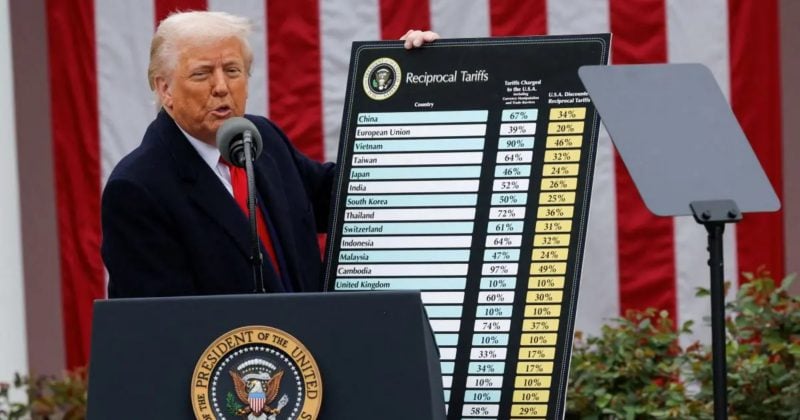
Trump administration appeals after court blocks Liberation Day tariffs
Bitcoin reclaimed $108,000 following the news.
A US federal court on Wednesday determined that President Donald Trump lacked the legal basis under the International Emergency Economic Powers Act (IEEPA) to impose sweeping global tariffs.
In response, the Trump administration announced plans to appeal the decision, aiming to reinstate the tariffs that were a central component of its trade policy.
The decision, issued by the Manhattan-based Court of International Trade, came in response to two lawsuits filed by businesses and state governments.
In April, Trump declared a national emergency over trade deficits and non-reciprocal practices, calling them a threat to US security. Using IEEPA, he imposed a 10% tariff on most imports, with higher rates for top trade-deficit countries, aiming to protect US workers and restore economic sovereignty.
However, Trump’s use of the IEEPA for tariffs sparked controversy and legal challenges. Critics argued that the law wasn’t meant to authorize tariffs and that trade deficits don’t qualify as a national emergency.
Acting on behalf of five American businesses, the Liberty Justice Center initiated a lawsuit challenging the tariffs. These companies argued that the tariffs would harm their operations.
The court on Wednesday found that Trump’s use of IEEPA, which typically allows the president to act in response to national economic emergencies, usually involving foreign threats like terrorism or hostile nations, did not justify the broad imposition of tariffs on imports from countries running trade surpluses with the US.
In other words, tariffs don’t fall under that emergency scope when applied so broadly and outside of a defined national threat.
More importantly, the court emphasized that only Congress has the constitutional authority to regulate international trade, a power the president cannot override with emergency declarations.
“The court does not read IEEPA to confer such unbounded authority and sets aside the challenged tariffs imposed thereunder,” the judges wrote.
There are also six other ongoing legal challenges, including suits filed by 13 US states and other small business groups.
Markets reeled from Trump’s tariffs as Bitcoin hit five-month low
US equities and the dollar remained volatile in mid-April as markets reacted to President Trump’s sweeping “Liberation Day” tariffs, imposed under the IEEPA. The resulting uncertainty rippled through global stock, bond, and gold markets, and also triggered sharp declines in crypto assets.
Bitcoin fell below $75,000, its lowest level since last November, as markets reacted to Trump’s tariffs and the uncertainty they triggered.
However, analysts noted that Trump’s aggressive use of emergency trade powers may ultimately enhance Bitcoin’s appeal as a hedge against US policy risk, potentially accelerating a global shift away from reliance on the US dollar.
At press time, Bitcoin was trading at around $107,700, down 1% in the last 24 hours, per TradingView.
